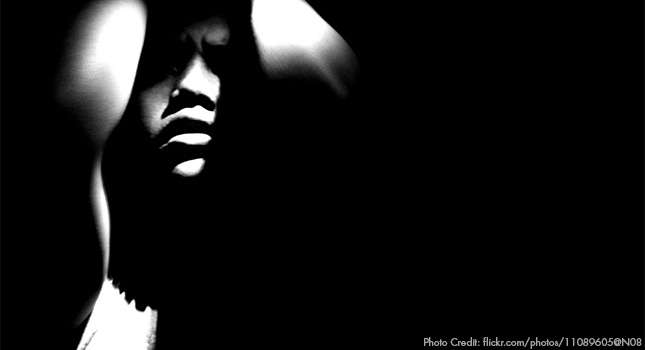A relapse can happen to anyone in addiction recovery. It does not mean that the addict has failed at treatment. Relapse is common and is actually a prime opportunity for further personal growth, as well as for re-evaluating a relapse prevention strategy. If someone you know is in recovery, it would be beneficial if you learned the relapse warning signs and how you can help.

Receiving proper treatment for addiction to alcohol or drugs is a vital step in the process of managing addiction. Sadly, an average of 50% of alcoholics and up to 60% of drug addicts will face a relapse. If someone you know has received treatment for addiction, it is crucial for you to understand the signs of relapse in order to prevent it from happening. If relapse does occur and the issues are dealt with early enough, they can be addressed before the situation gets out of hand.
Firstly, a person’s relapse does not mean that he or she has failed at treatment. In addition to the fact that relapse is a common (and almost expected) element of the recovery process, relapse should be viewed as an opportunity to re-evaluate the relapse prevention strategy and perhaps formulate one that is more effective.
Some obvious signs that a person is engaging in relapse related behaviours include:
- Alcohol, medicine or money that is missing
- Bottles of alcohol (or other paraphernalia) placed around the house
- The addicted person comes home intoxicated
The addicted person may also be displaying behaviours and emotions such as anxiety, anger, impatience, sensitivity and moodiness. He or she may be unsociable, not wanting help, neglecting treatment, having sleep issues, changes in appetite, thinking and talking a lot about the past, lying, socialising with former user friends, or discussing relapse. If you notice any of these signals, it is best to intervene as soon as possible to prevent a full blown relapse.
The Signs of Relapse and How to Address Them
If you think that someone has relapsed, then you should confront the situation right away. There are several ways in which you can do this. You could start by telling the person that you think they are using. If they admit to using again, then you could say that something has to be done about it and make suggestions.
It can be beneficial to begin setting limits at this point by letting them know that you do not support their return to drug use, and that they will need to seek help or there will be consequences. Then you can discuss the consequences that are ideal for your relationship. For example, if they are a family member, then tell them that they need to get help or they cannot live in the house anymore.
There are additional ways to provide relapse support, such as by remembering that this is not your battle; it is the addict’s responsibility. Stand firm; hold him or her accountable. Take care of yourself and be a healthy example for this person. Perhaps most of all: be optimistic and encouraging. Remind them that this relapse does not represent failure. Do not be pushy, however do not dismiss the fact that this relapse is a real problem either, or try to take away this person’s guilt or anxiety.
Why Do Relapses Occur?
Relapse means that a person in addiction recovery has started using again. It can happen right after attending a treatment programme or even in the following months or years. Relapse largely depends on a person’s ability to deal with triggers, environmental or psychological. Relapsing and returning to rehab is a common scenario amongst addicts, as addiction is a chronic illness.
Some people have to return to rehab several times before they are able to maintain long-term sobriety. This cycle does not mean that the person in recovery has failed. It could be that he or she was not equipped with the proper tools and techniques to deal with the addiction on a daily basis, as part of a relapse prevention plan (or the plan was not solid enough).
A customised relapse prevention plan is a vital part of any effective addiction treatment programme. However, if at any time in their recovery an addict gets lax in practicing what they learned during treatment, then their risk of relapsing greatly increases. The chances of relapsing are recorded to be highest during the first few months out of rehab, which is called the ‘early recovery period.’ It is therefore imperative that all newly recovering addicts, after having been through an intensive rehab programme, receive proper continuing care to help them ‘step down’ into normal life.
What Is Relapse Prevention?
A structured aftercare programme that guides those in recovery through the relapse prevention strategies that they learned during rehab has been found to enhance the general success and effectiveness of any addiction treatment programme. Effective continuing treatment methods include group counselling, individual counselling sessions, and attending support group meetings.
Relapse prevention is a set of coping techniques that recovering addicts learn during their addiction treatment programme to help them avoid relapse, such as identifying warning signs, recognising triggers and managing sober time. It also provides a solid foundation for recovery by incorporating mindfulness and deeper understanding.
Recognising triggers is an important part of relapse prevention. It requires the person to identify the feelings, behaviours and thoughts that have caused them to use drugs, or that entice them to continue using. Once they can recognise their triggers, they will start to see a pattern. If they experience triggers during recovery, they will be able to use the methods they learned to avoid relapse.
After they have recognised their triggers, they should start to develop alternatives to using drugs. This will help them understand how to deal with their triggers instead of avoiding them. Avoiding triggers is not always possible, but it is possible to manage the reactions to these triggers through awareness.
How Continuing Care Helps Prevent Relapse
An outpatient drug treatment centre can assist in providing recovering addicts with the proper aftercare, such as counselling sessions. The goal of counselling sessions is to help those who have completed intensive treatment continue the important work that they have started. Some people prefer to have individual counselling sessions due to privacy issues, or these sessions allow for a more flexible schedule. During group counselling sessions, clients receive support from peers in the group and a professional counsellor.
It can be quite difficult for recovering addicts to balance the requirements of family, work and recovery, which is why continuing therapy through an outpatient support group helps by providing a place to voice one’s concerns, stressors and relapse triggers. The group also provides a place for checking-in, sharing personal issues and receiving other support for the numerous challenges that occur during early recovery.
The Cabin Hong Kong offers a Relapse Prevention Continuing Care group session on Thursday evenings from 6:30-8:00pm. These sessions provide a supportive and safe environment for clients to practice long-term recovery. All of the sessions are led by professionals and provide a different topic for discussion.
Contact The Cabin Hong Kong today for more information about this group, or about any of our comprehensive addiction treatment programmes that use our unique Recovery Zones model. This ensures holistic emotional repair and growth allowing you to enter a life in long-term addiction recovery.


